In autos, it's Detroit & Ontario vs. World
Billions of dollars at stake as politicians, execs tiptoe forward
Vic Fedeli, Ontario’s Minister of Economic Development, Job Creation and Trade, planned carefully around the Detroit Auto Show that opened to the public this weekend — with billions of dollars at stake.
Yes, he would include hours walking through Huntington Place on Saturday to examine hundreds of new cars just as tens of thousands of other visitors are expected to do on Day One of the 10-day show. Understanding car design, car tech and every little detail matters.
Behind the scenes, there’s so much more.
“I have meetings with automakers, component makers,” Fedeli told me a day before his visit. “It’s important to see where the market is headed, what the talk is … It’s important to continue to show that Ontario, Canada is the place where auto is happening.”
Just upriver from the Detroit Auto Show is the Windsor (Ontario) Tunnel, and downriver is the Ambassador Bridge — and the new Gordie Howe Bridge, major arteries connecting the two countries.
Five global automakers have factories in Ontario: Ford, General Motors, Stellantis, Honda and Toyota. Plus, more than 700 parts suppliers, including Magna and Linamar, Fedeli noted.
Last year, Volkswagen broke ground on its $15 billion battery factory site, expected to create 3,000 jobs, in St. Thomas, just southeast of London. It’s scheduled to open in 2027. Honda and others are investing billions in electric vehicle (EV) and battery plants in Ontario.
Ontario’s political leaders don’t see Michigan as competition, necessarily, but as part of a powerhouse team of Detroit and Ontario versus competitors worldwide.
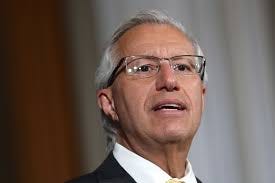
“We view it more globally. We travel around the world, whether Japan or Germany,” Fedeli said. “They see the turmoil in the world — They see nothing but stability in Ontario. It’s a reliable, dependable, stable place. We have all the infrastructure required in the auto sector. That’s why we were able to land in the last four years years $45 billion in automotive and EV-related investments.”
Ontario is proud of its status as the No. 2 automaker (behind Detroit/Michigan) in North America with 100,000-plus autoworkers, and the No. 2 tech jurisdiction in North America (behind Silicon Valley) with 450,000 tech workers, he said.
Internationally, the auto industry cites Detroit when referring to metro Detroit or Michigan. For example, Ford is based in Dearborn while Stellantis is in Auburn Hills. They have always been part of the Detroit Three along with General Motors downtown.
Ontario grows as an auto, tech powerhouse
“There's tremendous collaboration with the state of Michigan, especially with the automakers and the parts makers and the tool and die and mold makers,” Fedeli said. “Parts are made here, shipped to Michigan, and go back and forth. I would say there's a healthy competition between Michigan and Ontario for worldwide business.”
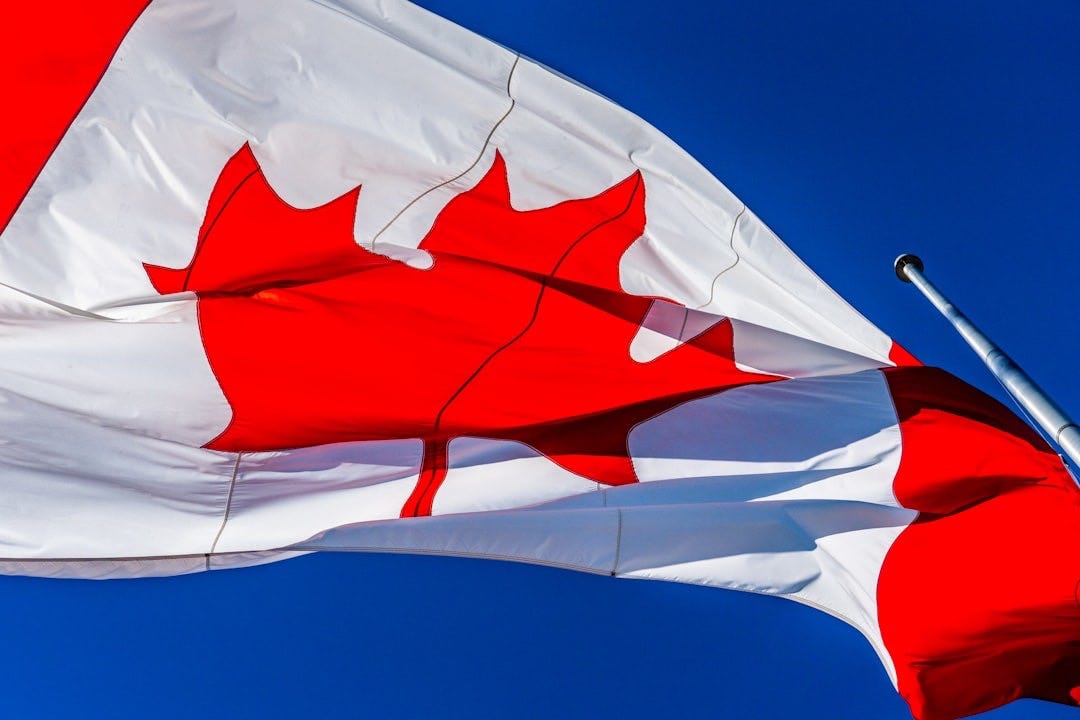
Last year, Bloomberg named Canada as the leader of the battery supply chain, dethroning China for the first time. The ranking assesses each country’s potential to build a secure, reliable and sustainable supply chain for lithium-ion batteries.
“Ontario is building a self-sufficient automotive supply chain that promotes cross-border trade, a key pillar of our province’s automotive strategy, the Driving Prosperity plan,” according to a statement released by Fedeli’s office. “By connecting the critical minerals of Northern Ontario with the advanced manufacturing strength of the South, Ontario has created a seamless, end-to-end pathway to build vehicles in partnership with the United States.”
When it comes to international politics, or the debate led by President-elect Donald Trump about whether Canada should become a 51st state, Fedeli defers to the Canadian government.
“We have signaled in the past that we are completely aligned with the U.S., as they are our No. 1 trading partner and we need alignment with them,” he said.
Ontario Premier Doug Ford, the leader of Canada's most populous province, said Trump has been misinformed about the U.S. not needing Canadian products, the Associated Press reported on Friday, Jan. 10.
“Supply chains for the auto industry are deeply connected, with parts manufactured in Ontario being used in cars that are assembled in Detroit and then sold back to Canada,” AP noted, which is why tariff discussions are especially complicated.
An option to China for minerals
While Detroit is known as the Motor City, its neighbor just across the Detroit River is a major player in automotive innovation, especially electrification and computer technology.
Canada is the only country in the Americas with all minerals needed to manufacture electric vehicle batteries, such as nickel, cobalt, graphite and lithium, according to the Business Development Bank of Canada. This allows for sustainable and ethical extraction and processing of materials to meet the manufacturing demand for batteries.
New auto industry investments are in the pipeline, Fedeli said.
“We are still bringing companies from around the world to fill in the value chain for battery manufacturing,” he said. “We'll have several announcements coming in the near future.”
Costs of building factories in Canada are offset by the exchange rate of the Canadian dollar, which dipped below 70 cents (U.S.) in December. Also, employee healthcare is covered by the Canadian government, Fedeli said. “When you fall and break your leg, you pull out your health card, not your credit card.”
On top of all that, he said, Ontario schools are graduating 70,000 scientific and tech engineering and math graduates every single year. “It comes down to raw talent. The Toyota plant in Ontario was named by J.D. Power the number one auto plant in the world. Not just North America. The world.”
Trump has said during a news conference at Mar-a-Lago news conference this month, “You know, they make 20% of our cars. We don’t need that. I’d rather make them in Detroit.”
The trade relationship between the U.S. and Canada is vital, with each country being the other country’s largest trading partner. In 2023, U.S. exported $441 billion worth of goods and services, while it imported $482 billion worth of goods from Canada, according to a July 8, 2024 report from the U.S. Congressional Research Service.
“We're Canadians, so we don't boast too much,” Fedeli said. “We are the No. 1 export destination for 17 U.S. states and we are the number No. 2 export destination for 11 more states. So, 28 U.S. states rely on us to be their customer.”
What Trump says about Canada
CBC News aired a segment on Jan. 10, 2024 highlighting and explaining recent comments made by Trump.
NBC aired on “Meet the Press” video of Trump saying, “We are subsidizing Canada to the tune of over $100 billion a year.” CNBC aired video of him saying, “The United States is subsidizing Canada.”
Trump hasn’t cited the source of his statement or the $100 billion figure, noted Andrew Chang, host of the CBC News show “About This.” It appears Trump may be referring to his own interpretation of trade data.
“We spend hundreds of billions a year to take care of Canada — we lose — in trade deficits,” Trump said in a segment aired by the Canadian Broadcasting Corp. program.
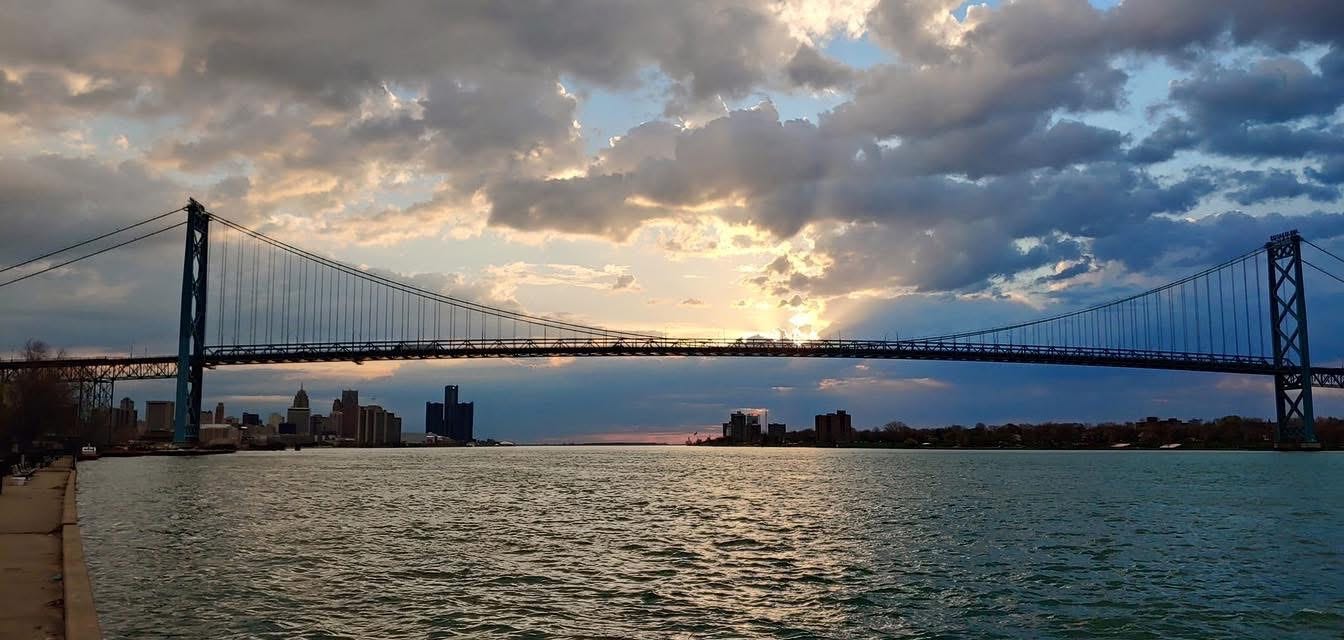
News consumers should carefully listen to the language that Trump is using, said Chang, whose program specializes in explaining complicated issues. “There is a bigger question here about how Trump appears to be framing the trade imbalance as some sort of subsidy to Canada … When I buy a $6 jar of mayonnaise from Walmart, that’s not a subsidy. I’m buying mayonnaise Americans are simply buying more from Canada than Canadians are buying from Americans.”
Why the relationship matters
The two countries have been working together for more than half a century, said Sam Fiorani, vice president of global vehicle forecasting for AutoForecast Solutions of Chester Springs, Pennsylvania.
“They have a symbiotic relationship,” Fiorani told me. “Vehicles and parts cross the border for assembly, for sales. Some of the largest suppliers in the world come out of Canada — providing items including seats, steering wheels, airbags, just everything.”
Canada is so well organized that they design their own concept cars in collaboration with their suppliers, Fiorani said. “Canada is the largest consumer of American products, larger than Mexico and larger than China. So U.S. government officials vilifying Canada is not going to help American consumers.”
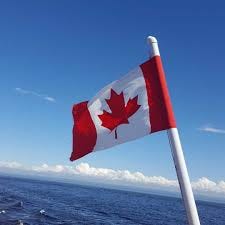
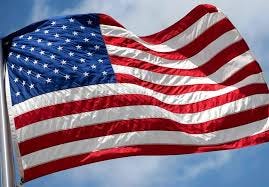
With Canada being the top trade partner with the U.S., the last thing consumers in either country need is a trade war, said Marick Masters, professor emeritus at the Mike Ilitch School of Business at Wayne State University in Detroit.
“There’s an interest in preserving the integrity of the faculties of companies on both sides of the border,” he said. “They complement each other.”
A look back: Trump policy impact last time
An estimated 600,000 Canadians live in the U.S., and about 37,000 in Michigan, according to the non-profit World Population Review. Thousands of Canadians cross the border to work and shop in metro Detroit. Some people even keep mailboxes in the U.S. because it saves money on shipping.
During the last Trump Administration, visa changes directly impacted the ability of Canadian nurses to get to their jobs at metro Detroit hospitals that face staffing shortages.
In 2017, about 400 Canadian nurses worked for Henry Ford Health System, approximately 30 of them nurse practitioners or nurse anesthetists, Marc Topoleski, an immigration lawyer representing Henry Ford Health System, told the Detroit Free Press. Hundreds more work for the region's other major health care systems, including the Detroit Medical Center, Beaumont and St. John Providence.
(These special visas for non-immigrant professionals are different from H-1B visas assigned to highly skilled workers widely used in the tech industry.)
Trivia tip: Journey song connects Detroit, Ontario
Because of a curve in the Detroit River, the City of Windsor, Ontario, is actually south of Detroit. It’s why Canadians often refer to Windsor as “south Detroit,” a nod to the famous 1981 Journey song “Don’t Stop Believin’” that includes the line, “born and raised in south Detroit.”
More: Donald Trump calls Bill Ford ‘Out of the Blue’
More: Automakers donate $1M to Trump inaugural committee
More: Auto industry paralyzed by uncertainty
PS: As a proud member of the Iowa Writers’ Collaborative, a roundup of world-class journalists, I hope you’ll check out the columns that include news, commentary and features.




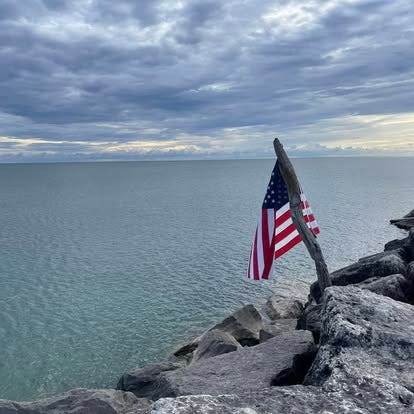
Well done, Phoebe. Excellent points and analysis.
Appreciate this piece. Please keep reporting on this issue as the year(s) unfolds!